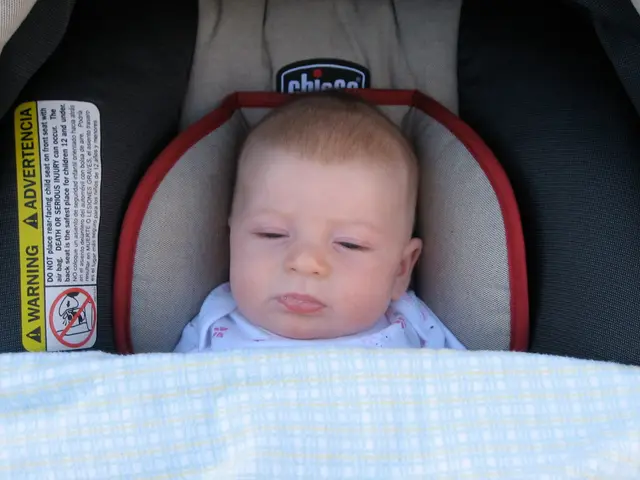The Price Tag on Franchising: A Breakdown
Hey there, partner! Thinking about diving into the world of franchising, huh? A smart move indeed! Whether you're a greenhorn or a seasoned business player craving a new venture, franchising is an appealing option boasting a tantalizing blend of independence and support. But, don't forget, each franchise comes with a price tag, and it's essential to understand the costs before diving in.
Buying a franchise in the UK involves several wallet-busting costs, so let's take a gander at what's involved before you dive headfirst.
Figuring Out Your Wallet for a Franchise
When you commit to buying a franchise, you'll face several expenses, and it's vital to grasp them before making the leap. The exact costs will rely on the industry you fancy and the specific franchise you've got your eye on. Here, we demystify the financial nuances of the average UK franchise to give you a ballpark idea of what you'll be coughing up.
How Much Cash Do You Require for a Franchise?
Franchises range from ultra-affordable (a steal at £5,000) to jaw-droppingly expensive (£300,000 and up!). The British Franchise Association quips that the average cost of a franchise is £42,200. However, keep in mind that such a figure is a broad stroke, considering the diversity of franchises available, from humble home-based cleaning services to high-end retail stores worthy of a fortune.
Costs and fees will differ significantly between industries, with numerous expenses extending beyond your initial investment.
1. The Franchise Fee
The franchise fee is the entrance fee you pay for the privilege of operating under the franchisor's name and business model. This fee is typically the biggest upfront expense as it opens the door to the expertise and necessities that warrant a thriving franchise business.
Franchise fees wobble depending on the franchisor, but you can expect to pony up somewhere between £10,000-£50,000.
2. Incipiency Costs & Investment
Beyond the franchise fee, the franchisee shoulders the start-up costs, which encompass expenses such as:
- Property fees
- Equipment and store furnishings
- Inventory and supplies
- Staff wages
- Everything else that'll enable your franchise to hum along.
The kind of franchise arrangement you pursue will dictate your start-up costs.
3. Working Capital
Your franchise fee isn't the end of your financial obligations. Franchisenators will usually set minimum financial requirements for you to meet to be considered a contender, and running any business will crave a healthy flow of working capital to cover daily operational expenses.
The necessary liquidity to keep your business afloat in the beginning contributes to the overall franchise costs, and as the franchisee, it's on you to provide it.
4. Royalty Fees
Finally, royalty fees are a standard requirement for any franchise, guaranteeing that you can keep enjoying the brand's support, even as you blaze your own trail. These fees can either be flat fees or a percentage of your business's monthly gross sales, with the latter being the more prevalent method.
Royalty payments are usually about 4-8% of your business's gross sales, but this percentage can be higher depending on the industry's nature.
5. Potential Additional Expenses
The above costs account for the basics of setting up your franchise and starting it up, but you'll also need to ponder ongoing costs as you establish your business. You may be responsible for footing the bill for things like marketing and advertising expenses, for example.
There are other possible costs you might not consider initially, including franchise renewal fees, legal fees, and insurance expenses.
A reputable franchisor will lay out all the costs involved in purchasing a franchise, as well as any additional fees or costs that may arise in the future.
How Much Does a Franchise Owner Bank in the UK?
Franchising can be a lucrative way to run your own business, with a British Franchise Association study from 2018 reporting that 93% of franchise-led businesses are profitable—far outpaces the prospects of success for independent start-ups.
The same study indicates that 60% of franchised businesses rake in over £250,000. Ultimately, your profitability depends on the industry, the competition landscape, and your commitment to work.
How Much Will an Esquires Coffee Franchise Set You Back?
Hankering after buying a franchise and dreaming of running a coffee shop? Esquires Coffee might just be your ticket. We're zealous about nurturing aspiring entrepreneurs and team up closely with our franchisees, creating authentic experiences for modern coffee lovers.
As with any franchise, the cost of an Esquires Coffee franchise will differ, but here's a rough estimate for a single-store deal:
- Franchise fee: £19,500
- Minimum cash investment: £100,000
- Start-up costs for essentials like hiring, training, store design, equipment, marketing, property, fit-out, and furniture costs.
Esquires Coffee Royalty Fees
Our royalty fees are 6% of the gross monthly sales.
How Much Profit Can You Anticipate with an Esquires Franchise?
Our franchisees can generally anticipate a net profit ratio of around 12.5-15%. Remember, though, this figure is a rough estimate—various factors can impact the real-world results.
Head to our FAQs page to learn more about what partnering with Esquires would mean. Over the years, we've worked with a diverse mix of UK franchisees, from newbies to seasoned pros who share our love for exquisite, ethical coffee.
At present, we have franchise opportunities across all regions of the UK. So, if you're keen to join the burgeoning franchising industry, there's no time like the present!
- The franchise fee for operating under a UK franchisor's name and business model typically ranges between £10,000-£50,000, making it a significant upfront expense.
- Beyond the franchise fee, start-up costs for a UK franchise may include property fees, equipment and store furnishings, inventory and supplies, staff wages, and various other expenses that enable the franchise to operate.
- In addition to initial costs, franchisees should also budget for ongoing expenses like royalty fees, marketing and advertising expenses, franchise renewal fees, legal fees, and insurance expenses.




